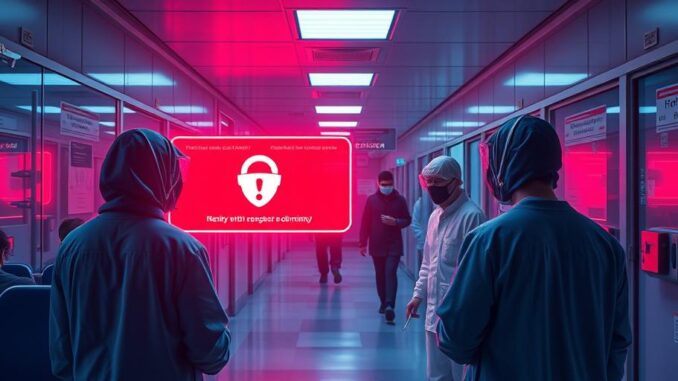
Summary
This article examines the increasing threat of ransomware attacks on hospitals, focusing on the 2017 WannaCry attack on the NHS. It discusses the attack’s impact, the lessons learned, and the ongoing cybersecurity challenges facing healthcare systems. The article also explores more recent attacks, highlighting the continued vulnerability of hospitals to these digital threats.
** Main Story**
Okay, so let’s talk ransomware and healthcare – it’s a topic that keeps me up at night, honestly. We’ve seen how devastating these attacks can be, and the NHS WannaCry case is a prime example. It’s a wake-up call that, sadly, keeps ringing.
The digital revolution’s been fantastic for healthcare, no doubt, but it’s also opened up a whole new can of worms. These ransomware attacks…they’re like digital hostage situations, and hospitals are increasingly becoming the target. Criminals encrypt everything, and you’re left scrambling, trying to figure out how to get your data back without paying a ransom.
WannaCry: A Digital Nightmare
Remember WannaCry back in 2017? May 12th, I think it was. It felt like the world was holding its breath. The worm just spread like wildfire. Over 150 countries were hit, and the NHS… well, they were right in the crosshairs.
See, the attack exploited a weakness in older Windows systems, encrypting all the critical files. Imagine being a doctor or a nurse and suddenly you can’t access patient records. It’s terrifying! Surgeries were cancelled, appointments were postponed, ambulances were diverted. And, honestly, staff were back to using pen and paper. It was like stepping back into the dark ages. The estimated cost to the NHS? Around £92 million. Can you believe that?
What We Learned (The Hard Way)
WannaCry really highlighted some pretty serious cracks in the NHS’s cybersecurity armor. They were relying on outdated systems, and security patches? Well, let’s just say they weren’t exactly a priority. It really hammered home the point that investing in robust cybersecurity isn’t a luxury—it’s an absolute necessity. And I’m talking about regular updates, staff training, and having a solid incident response plan in place. You can’t just bury your head in the sand and hope for the best.
Because hope isn’t a strategy.
The Threats Keep Coming
The thing is, WannaCry wasn’t a one-off. Ransomware attacks on hospitals are, sadly, on the rise. Take the 2022 attack on Advanced, for example. They are a major NHS software supplier. That really caused chaos, and sensitive patient data was exposed. That’s why it’s so important to nail down security. Multi-factor authentication, especially, for third-party vendors who have access to your systems, you know?
And It’s Not Getting Any Easier
And just this past June, right, we had that Synnovis attack by the Qilin group. Blood tests, transplants, the core functions of pathology services in London got disrupted. It’s a constant reminder that healthcare is a target. The threats are always evolving, and we need to stay one step ahead. I mean, aren’t you exhausted just thinking about it?
What’s the Answer?
Look, it’s clear that with our increasing reliance on digital systems, cybersecurity needs to be a top priority in healthcare. We’re talking about regular security audits, comprehensive staff training, and really solid incident response plans. And it’s not something hospitals can do alone. Collaboration between healthcare organizations, government agencies, and cybersecurity experts is essential. Protecting patient data and keeping healthcare services running smoothly, it’s a team effort. Ultimately, that’s what it comes down to.


The point about the WannaCry attack highlighting serious cracks in cybersecurity armor is critical. How can healthcare organizations effectively balance the need for cutting-edge technology to improve patient care with the imperative of robust and up-to-date security measures to prevent future attacks?
That’s a great point! Balancing innovation and security is definitely the million-dollar question. Perhaps a framework that integrates security assessments into the technology adoption process could help? It’s about proactively identifying vulnerabilities instead of reacting after the fact. Your thoughts?
Editor: MedTechNews.Uk
Thank you to our Sponsor Esdebe
Given the increasing sophistication of ransomware, how effective are current incident response plans in truly mitigating the long-term operational disruptions and reputational damage hospitals face post-attack?